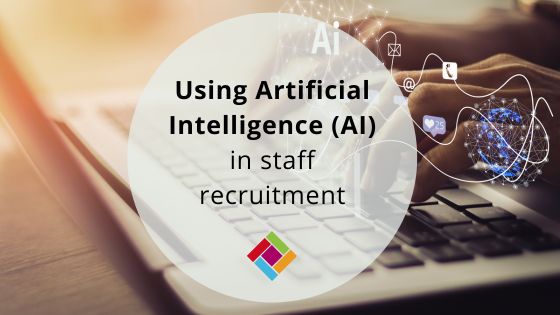
Finding the right staff is not just important, it’s essential to the growth and success of your business. Often, this can include a lengthy recruitment process when you may already be lacking in resource. Integrating Artificial Intelligence (AI) into your recruitment process can be a game-changer. Not only can it enhance efficiencies, but it may also help to reduce bias.
So how can you integrate AI into your recruitment process?
Understanding AI in recruitment
AI in recruitment could automate and enhance the recruitment process. For small business owners, managers, and founders, this could mean reduced time spent sorting through applications and ensuring a more consistent approach.
Benefits of AI in recruitment
- Efficiency.AI can handle large volumes of applications quickly, screen applications and identifying the best candidates based on predefined criteria.
- Reduced Bias.Designed to assess candidates based on skills and experience, this can help to minimise unconscious biases that can influence hiring decisions.
- Improved Candidate Quality. Sophisticated algorithms can better match candidate’s profiles with job descriptions. Helping you to meet the right candidates who could be more likely to perform well and stay longer.
- Enhanced Candidate Experience.AI driven chatbots can provide immediate responses to candidate enquiries, keeping them engaged and informed throughout their onboarding. This level of interaction can also help to improve your brands reputation among potential employees.
Implementing your AI process
Integrating AI into your recruitment process doesn’t have to be daunting. Here are some practical steps to get you started:
1. Identify your goals
Before you start, it is essential to understand what you’re trying to achieve. Are you looking to speed up the screening process, enhance the quality of hires, or improve candidate engagement? It is these goals that will help guide your choice of AI tools.
2. Choose the right tools
These will depend on your objectives, and there are many to choose from. So, finding the right tool for your business needs and industry is key.
- CV screening
Tools like AI-powered Applicant Tracking Systems (ATS) can scan for keywords, skills, and relevant experience, ensuring that you don’t miss out on top talent.
- AI powered sourcing tools
These scour the internet – including social media – to find candidates who match specific job descriptions. They can also identify people that are not actively looking, but who may be ideal for the role. LinkedIn Recruiter is an example of this.
- Chatbots
Tools like Olivia by Paradox can engage with candidates, answer their questions, and even schedule interviews, providing a consistent and interactive experience.
- Video interviewing software
Video interviewing software tools use AI to analyse video interviews, assessing candidate responses not just for content but also for subtle cues like tone, rate of speech, and facial expressions. This can help in assessing personality traits and suitability for the role beyond what is visible on a CV.
- AI for candidate assessment and matching
Using tests, games and tasks, applicants can be assessed to predict job performance. Platforms like Ceipal can be used to match applicants more accurately to the roles that they are best suited to, based on their cognitive abilities and personality traits.
3. Train your team
Ensure your hiring team are comfortable with these new tools. Most AI platforms offer training sessions and customer support. Taking full advantage of these resources can ease the transition and ensure you’re getting the most out of your investment.
4. Monitor and Refine
AI can be powerful, but it’s not just a set-it-and-forget-it kind of tool. It is important to regularly review its performance and the outcomes they are generating. Ensure it aligns with your company values and tone of voice. Be prepared to adjust your strategies as needed to continue improving your hiring process.
Challenges of AI in recruitment
Whilst AI has its advantages, as such a powerful tool, there are also many limitations. They rely entirely on the data that they are fed, so ensuring data quality and continually updating of this is crucial to avoid errors. Using these tools, you should also ensure your compliance with General Data Protection Regulation (GDPR). It’s so important that human oversight is essential. AI should support, not replace human judgement.
In addition, whilst AI tools claim to reduce bias – this is not neccesarily always the case. According to the Government’s AI Barometer report, “The most significant risks are the capacity for algorithmic systems to perpetuate and entrench human bias and resultant discrimination in recruitment and employment decision-making, and the impacts associated with increased workplace monitoring.”
When used correctly, the integration of AI in recruitment process could offer a new avenue to streamline your hiring, secure better talent and enhance the overall candidate experience.
For support with your hiring processes from our team of HR consultants, you can find out about how to work with Bespoke HR here.